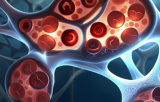Recent advancements in endothelial primary cell research have significantly enhanced our understanding of vascular biology and opened new avenues for therapeutic applications.
Endothelial Progenitor Cells (EPCs):
EPCs are instrumental in vascular repair and regeneration. A comprehensive review by Medina et al. (2024) delves into the origins, classifications, and therapeutic potential of EPCs, emphasizing their role in postnatal vasculogenesis and their promise in regenerative medicine.
Discovery of EndoMac Progenitor Cells:
A groundbreaking study published in Nature Communications (2024) identified a bipotent population of endothelial-macrophage progenitor cells, termed EndoMac progenitors, in the adventitia of mouse arteries. These cells can differentiate into both endothelial cells and macrophages, contributing to neovascularization and tissue repair. Their embryonic origin and role in vascular remodeling present new therapeutic possibilities for ischemic conditions.
Clinical Implications and Future Directions:
The identification and characterization of EPCs and EndoMac progenitors underscore the potential of endothelial primary cells in developing novel treatments for cardiovascular diseases, enhancing wound healing, and advancing regenerative medicine. Ongoing research aims to translate these findings into clinical applications, focusing on improving isolation techniques, understanding differentiation pathways, and ensuring the safety and efficacy of cell-based therapies.


